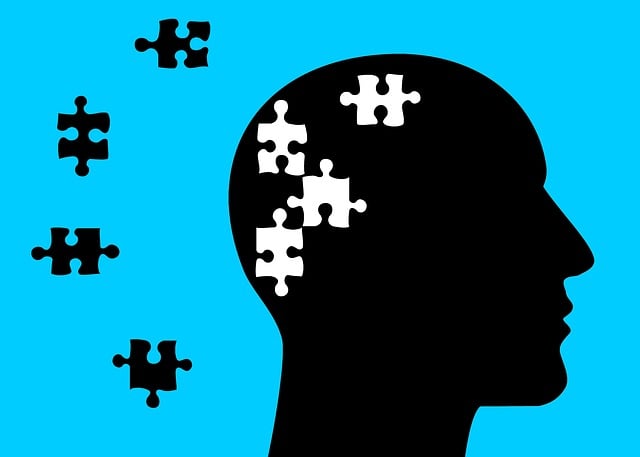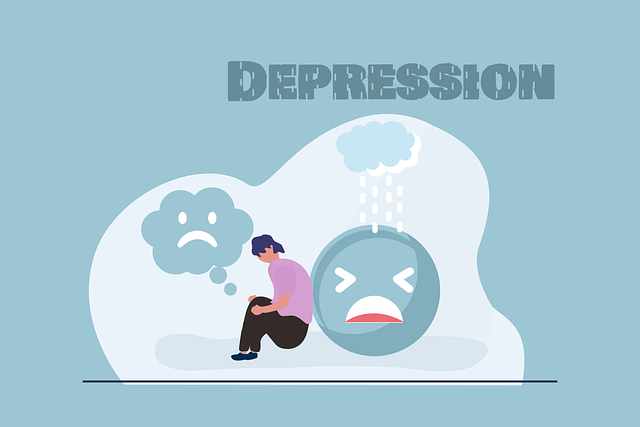Adolescent Teens Oppositional Defiance Disorder (ODD) is a behavioral condition characterized by anger, irritability, defiance, and vindictiveness towards authority figures. Untreated, it can persist into adolescence. Therapy focuses on teaching communication strategies, problem-solving skills, and emotional regulation through evidence-based practices like Cognitive Behavioral Therapy (CBT). Stress management is key; unaddressed stress exacerbates ODD symptoms. Effective therapy includes CBT, individual, and group settings, aiming to reduce oppositional behavior, improve relationships, and boost overall well-being by empowering teens with lifelong coping skills. Creating a supportive environment through structured routines, education, and awareness campaigns further aids in managing ODD and associated stress.
Stress reduction is crucial for adolescent teens with Oppositional Defiance Disorder (ODD), who often face mental health challenges due to heightened stress levels. This article delves into understanding ODD, its impact on teen mental health, and offers a comprehensive overview of effective therapy approaches. We explore evidence-based stress reduction techniques tailored for teens and emphasize the importance of creating supportive environments. By implementing these strategies, parents and professionals can navigate the disorder, fostering better mental well-being and enhancing treatment outcomes for adolescent teens with ODD.
- Understanding Adolescent Teens Oppositional Defiance Disorder (ODD)
- The Impact of Stress on Teen Mental Health
- Therapy Approaches for ODD: A Comprehensive Overview
- Evidence-Based Stress Reduction Techniques for Teens
- Creating a Supportive Environment for ODD and Stress Management
Understanding Adolescent Teens Oppositional Defiance Disorder (ODD)

Adolescent Teens Oppositional Defiance Disorder (ODD) is a behavioral disorder characterized by consistent patterns of angry, irritable, defiant, and vindictive behavior toward authority figures. This condition often emerges during childhood and can persist into adolescence if left unaddressed. Understanding ODD involves recognizing the underlying emotional and cognitive factors that contribute to a teen’s oppositional behavior. Many experts believe that ODD stems from a combination of genetic predisposition, environmental influences, and imbalanced brain chemistry.
Therapy for Adolescent Teens Oppositional Defiance Disorder focuses on teaching both teens and their families effective communication strategies, problem-solving skills, and Mind Over Matter principles to manage emotions. Mental Health Policy Analysis and Advocacy plays a crucial role in ensuring access to quality treatment options. Through Cognitive Behavioral Therapy (CBT) and other evidence-based approaches, professionals help individuals develop Emotional Intelligence, enabling them to understand and regulate their feelings more effectively. By addressing these core issues, therapy aims to reduce oppositional behavior, improve relationships, and enhance overall well-being.
The Impact of Stress on Teen Mental Health

Stress is a significant contributor to mental health issues among teenagers, with Oppositional Defiance Disorder (ODD) being one such manifestation. The adolescent period is a time of immense psychological development, and prolonged stress can disrupt this process, leading to various challenges. Teenagers experiencing ODD often struggle with impulse control, anger management, and defiant behaviors, which can be exacerbated by stress. Unaddressed stress may cause these individuals to feel overwhelmed, leading to more intense emotional reactions and difficulties in daily functioning.
Therapy plays a pivotal role in supporting adolescent teens with ODD. Through structured interventions, mental health professionals can teach self-awareness exercises tailored to manage stress effectively. These exercises empower teens to recognize triggers, develop healthier coping mechanisms, and build resilience. Additionally, risk management planning is essential, helping adolescents anticipate and mitigate stressors before they escalate. This comprehensive approach not only treats existing symptoms but also equips teens with lifelong skills to navigate life’s challenges, fostering better mental health outcomes.
Therapy Approaches for ODD: A Comprehensive Overview

Many adolescents struggle with Oppositional Defiant Disorder (ODD), a mental health condition characterized by persistent arguments with authority figures and active defiance or irritability. Therapy approaches play a pivotal role in helping these young individuals manage their symptoms and develop healthier coping mechanisms. One effective method is cognitive-behavioral therapy (CBT), which focuses on identifying and changing negative thought patterns and behaviors. CBT equips teens with valuable skills like conflict resolution techniques, helping them express their needs assertively while respecting others’ boundaries.
Additionally, individual and group therapies offer safe spaces for ODD sufferers to build inner strength and resilience. Through these therapeutic settings, adolescents can learn to regulate their emotions, improve communication skills, and develop healthier relationships. Mental illness stigma reduction efforts are also integral to the process, fostering a supportive environment where teens feel understood and encouraged to embrace their journey towards recovery.
Evidence-Based Stress Reduction Techniques for Teens

For teens dealing with stress, anxiety, or even Oppositional Defiance Disorder (ODD), evidence-based techniques have proven effective in managing mental health. Cognitive Behavioral Therapy (CBT) is a widely recognized and successful approach, helping adolescents identify negative thought patterns and replacing them with healthier alternatives. This therapy not only reduces stress but also teaches valuable coping skills for the long term.
Incorporating mindfulness practices into daily routines can significantly boost mental wellness in teens. Simple breathing exercises and meditation techniques have been shown to decrease anxiety levels and improve overall emotional resilience. Additionally, engaging in physical activity and maintaining a healthy sleep schedule are essential components of a holistic Mental Health Policy Analysis and Advocacy strategy, ensuring teens develop robust coping mechanisms and fostering better Mental Health Awareness.
Creating a Supportive Environment for ODD and Stress Management

Creating a supportive environment is pivotal for managing stress, especially among adolescents with Oppositional Defiant Disorder (ODD). This involves fostering a sense of safety and understanding within their living spaces and communities. Therapy for adolescent teens with ODD often emphasizes structured routines, clear boundaries, and positive reinforcement to mitigate stress triggers. A calm, predictable environment can significantly reduce anxiety levels and improve overall well-being.
Public awareness campaigns and healthcare provider cultural competency training play a crucial role in this process. By educating families, caregivers, and peers about ODD and effective crisis intervention guidance, we can create networks of support. This collective understanding is essential for recognizing signs of stress and implementing coping strategies tailored to individual needs. Ultimately, these efforts contribute to a more nurturing atmosphere where teens with ODD can thrive and develop healthy stress management techniques.
In light of the above discussions, it’s evident that managing stress is paramount in addressing Adolescent Teens Oppositional Defiance Disorder (ODD). By combining evidence-based stress reduction techniques with a supportive environment, therapists can effectively guide teens towards better mental health. Understanding ODD and its impact on adolescents is key to implementing successful therapy approaches, ultimately fostering resilience and improving overall well-being. For parents and caregivers, creating a nurturing space that incorporates these stress management strategies can be transformative in navigating the challenges of ODD.











